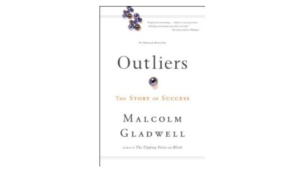In this book summary of Economics In One Lesson by Henry Hazlitt, you’ll find my notes, high-level ideas, valuable lessons, and important action steps.
Economics In One Lesson Summary
Everything that involves money has a cause and effect. Meaning where you spend your money one way means you have to sacrifice in another area.
Any form of economic destruction of real value, no matter how small or big, hurts the entire community in some way or another.
Supply and demand are just two different sides of the same coin. Supply creates demand, and demand creates supply.
“Everything we get, outside of the free gifts of nature, must in some way be paid for.” Meaning that anything paid for by the government, like a bridge, the people have to pay for through taxes.
Every government project with a main purpose to provide employment or add wealth to a special group of the community is solely taking wealth away from private citizens through taxation. No employment or wealth is actually added.
Taxing incomes at 50-70% makes people question why they should work and kills a country’s production.
“When the government makes loans or subsidies to business, what it does is tax successful private business in order to support unsuccessful private business.”
Machines don’t cause unemployment. That’s a logical fallacy supported by the labor unions for centuries and it’s never been true. For example, employment and the economy skyrocketed with the advent of machines during the Industrial Revolution.
It’s also false that doing labor more productively reduces jobs. People mistakenly believe that jobs are limited, so we should spread the work around inefficiently for employment.
Employment is just the means and not the ends. That’s why wise economic policy focuses on full production and increasing the people’s standard of living, not employment.
Tariffs benefit only special interests at the expense of all the other industries and consumers.
A country’s exports and imports should ideally even out.
Tariffs, and trying to bail out a failing industry, are only negatives to the economy and a country’s citizens as a whole over the long term. A growing economy is going to have dying industries based on the growth of new industries.
You can’t get something without giving up some opportunity cost. Everything costs something, whether it’s money, time, resources, energy, better production, or new technology.
Price-fixing and rent control are extremely destructive to the community and only have more negative effects the longer they go on.
Raising the minimum wage actually hurts the person receiving it because it limits their ability to earn more, independence, and self-respect. And it hurts the economy because production becomes less valued.
Labor unions don’t raise wages and they’re pretty much useless.
Inflation hurts the poor more than the rich, because the rich are better able to buy stocks and equities that rise when inflation does.
Saving money and investing money is just as good for the economy as spending money, and actually better in the long-term, because jobs are created and the economy grows when small businesses get capital from banks. This is contrary to what most economic writers will tell you.
Economics is all about common sense. Buildings burning down, paying people who don’t produce, giving people things for free, and so much more, don’t turn out positive for an individual or a country.
The purpose of economics comes down to this: “The art of economics consists in looking not merely at the immediate but at the longer effects of any act or policy; it consists in tracing the consequences of that policy not merely for one group but for all groups.”
[activecampaign form=3]
Mini Summary
Bad economists focus on the short-term effects of a policy for a special group, and miss out on the most important long-term effects. Good economists focus on the long-term effect of their entire economy and all of their citizens.
The economic common sense for a family—produce more, save more, invest more, buy more assets—applies just as well to a country.
Policy makers and economists should run the economy for everyone as a whole, not for special groups.
Three Favorite Quotes
“When Alexander the Great visited the philosopher Diogenes and asked whether he could do anything for him, Diogenes is said to have replied: ‘Yes, stand a little less between me and the sun.’ It is what every citizen is entitled to ask of his government.”
“The ideas which now pass for brilliant innovations and advances are in fact mere revivals of ancient errors, and a further proof of the dictum that those who are ignorant of the past are condemned to repeat it.”
“It is significant that while there is a word “profiteer” to stigmatize those who make allegedly excessive profits, there is no such word as “wageer” – or “losseer.”
Action Steps For You
I doubt any readers of mine are senators or members of congress. But that doesn’t mean you guys won’t be in the future or hold public office.
And as a private citizen, it’s still important that you understand basic economics and have a logical perspective on topics like supply and demand.
So keep in mind that although these action steps are less practical than most and deal with your thoughts, the to-do item here is to get a better grasp of fundamental economics.
To accomplish this, I recommend you read this summary again and then go read the book—because I can’t include all the golden nuggets from this book into one short summary.
Then, most importantly, use this lesson in economics to engage in productive dialogue with other citizens. And use your new economic knowledge to cast votes for your future economic policy makers in your city, state, and country.
Order Economics In One Lesson
Check out other book recommendations to become more successful.
[activecampaign form=3]




I read this one a few years back – it shaped my perspective on economics. I’d recommend it to anyone looking to learn more about economics and how the economy actually works.
You make a great point, one which the book makes time and time again: policy should be geared towards the entire country vs. special groups. When a group has an advantage, then it will throw things off.
Thanks for sharing. Have you noticed anything due to your reading, in terms of clarity of thought, etc.?
Great question, Erik.
I have noticed that I’m seeing more common ideas across books and articles because of how much I read. So I’m finding patterns and remembering information I take in much better. This obviously helps me reinforce those thoughts for the future.
I also have more knowledge to question or refute ideas I read that I don’t agree with, where I used to take everything I read as truth.
And my sleep has improved because I’ve gotten into the habit of reading before bed (where in the past I’d be staring at a lit up computer screen or my phone, and struggled to go to bed).
Needless to say, I love reading.